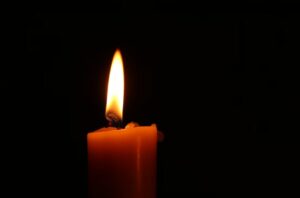Today, choosing a final disposition method for the lost loved one boils down to either cremation services Mentor, OH, or burial. What option you select depends on many factors, including the deceased’s preferences, beliefs, priorities, finances, family situation, and so on.
Still confused?
Let’s look at the two options in detail to give you a great start on deciding whether burial or cremation is best for you.
What is Burial?
Burial is considered the “traditional” option in the United States and much of the Western world. A body can be buried in the ground at a cemetery or on private property.
Most families decide to bury their loved ones in a cemetery or other designated burial grounds. But some choose to place the body in a mausoleum – also called above-ground burial.
The last few years have also witnessed the resurgence of green burial or natural burial. This is the practice of returning the human body to the earth in the most natural, eco-friendly way possible. It doesn’t involve the use of embalming fluid and metallic or wooden casket.
Pros of Burial
It provides a burial place the family can visit. A graveside funeral can be very comforting and emotionally satisfying for family and friends.
It gives enough time to the family to plan and execute a perfect plan that speaks to the personality of the deceased.
With the availability of eco-friendly and sustainable options, such as the “natural burial” methods, you have plenty of choices.
Many religious traditions prescribe full-body burial.
Cons of Burial
Generally, burial costs more than cremation. Casket/coffin costs are much higher than cremation urns. Similarly, the costs include a cemetery plot, digging expenses, grave liner, and headstones.
Traditional burial is not an eco-friendly option. Involves expensive and environmentally harmful chemicals used in embalming.
Moving a body after burial is very difficult or even impossible due to laws, regulations, and logistics costs
What is Cremation
In simple terms, cremation is a final disposition method where a dead body is turned to ashes through burning. Compared to burial, it takes significantly less time and thus, it doesn’t need any embalming or the use of caskets.
The fact that the cremated remains are returned to the family gives much more flexibility and a variety of options for memorial services after the cremation. The family can scatter the remains in whatever way they like, be it scattering on land or at sea, burying them in the garden or the deceased’s favorite place, turning it into jewelry, or keeping some of the ashes in a locket near your heart, and so on.
Even with cremation, you can choose just about all of the services and options offered by the funeral home. But the simplest and cheapest option is direct cremation in which the person’s body is cremated “directly” after death without viewing services.
Pros of Cremation
The biggest advantage is the lower cost associated with cremation.
Flexibility in disposition options, personalization choices, and the ability to move the ashes.
No additional shopping aside from buying the urn.
Schedule the memorial or scattering service anytime you want.
 Cons of Cremation
Cons of Cremation
Cremation is permanent. The process cannot be undone.
Some religions or cultures do not approve of cremation.
With this information, you’re in a better position to decide what’s best for you, a burial or cremation services Mentor, OH.

